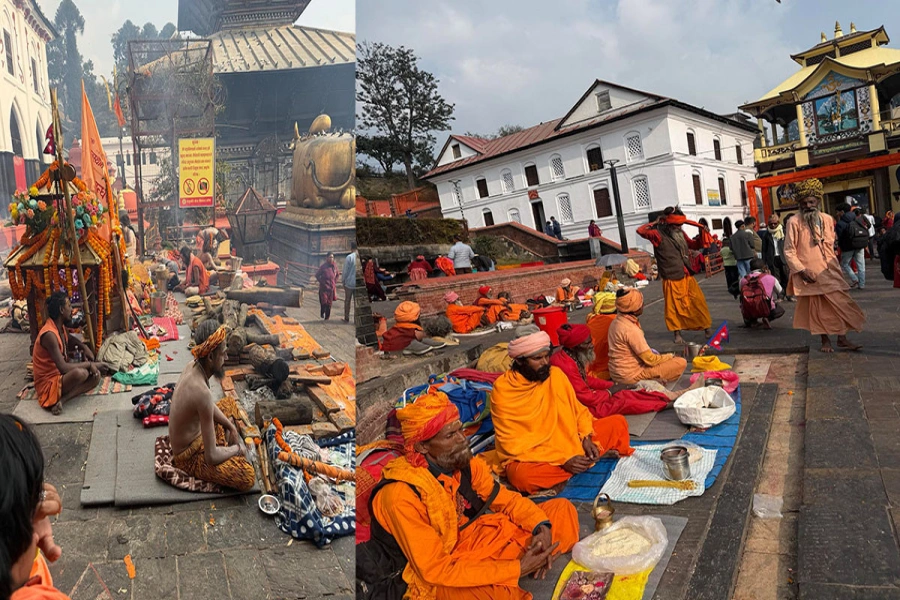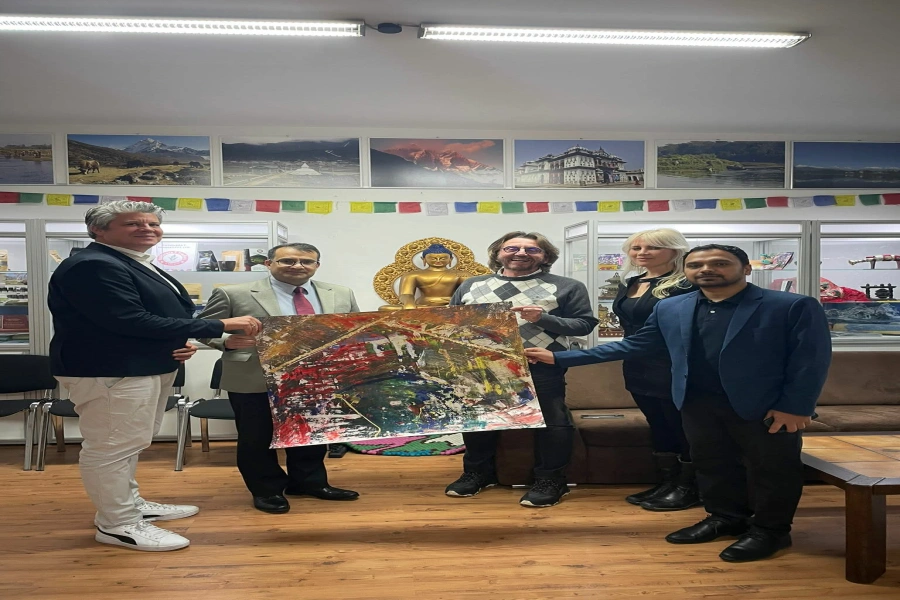In an era marked by changing world order, climate change, a weak global economy, escalating conflicts, and profound human suffering, geographical people connect, and digital diplomacy emerges as a beacon of hope, offering new pathways for dialogue and understanding of local and global issues between people and government, thus providing organic geo-economics activity. Amidst the destruction and despair that shadow both developing and developed nations alike, this modern approach to foreign relations harnesses the vast potential of technology to bridge divides and foster peace and economic activity. By leveraging digital platforms, from social media to virtual meetings, diplomats and leaders can engage more inclusively and responsively, reaching out to disenfranchised communities and ensuring that every voice has the opportunity to be heard. As we grapple with the challenges of the 21st century, digital diplomacy stands not only as a tool for conflict resolution but as a critical lifeline—redefining how we connect, negotiate, and coexist in our shared quest for a peaceful world.
As we stand on the brink of another revolution in information technology, echoes of the past ring loudly in the corridors of diplomacy. When the telegraph first stitched continents together, Henry John Temple, the 3rd Viscount Palmerston and a formidable British Prime Minister, reportedly exclaimed in disbelief, "My God, this is the end of diplomacy!" This dramatic response was not rooted in fear of technology itself but rather in recognition of its power to transform the very essence of diplomatic engagement. Today, as digital tools forge new channels of communication and reframe international relations, we find ourselves navigating similar waves of transformative potential. Just as the telegraph once reshaped the landscape of 19th-century politics, modern innovations challenge us to rethink how diplomacy is conducted in an interconnected world, urging a reinvention of strategies to harness these tools for global harmony and understanding.
In the intricate dance of diplomacy, the tempo is set by both tradition and innovation. As digital technologies seep deeper into the fabric of international relations, they are not merely altering the tools of diplomacy but are fundamentally transforming its very DNA. Today’s diplomatic agencies find themselves at a crossroads, where blending offline gravitas with online agility becomes crucial to addressing the nuanced nature of global issues. The rise of "Twiplomacy," a term that epitomizes the integration of social media savvy into foreign policy, highlights a broader shift. This evolution is not just about maintaining relevance in the digital age but also responding effectively to the dual pressures of an increasingly interconnected world and the intense public scrutiny driven by social media. In this era, success in diplomacy hinges not just on embracing digital strategies but on skillfully weaving them into the traditional tapestry of statecraft, ensuring that peaceful dialogue remains at the heart of conflict resolution.
Infographic: From Digital Divide to Digital Dividends

In the high-stakes chess game of international diplomacy, social media emerges as a double-edged sword. Consider the critical negotiations in Ukraine during 2013, a tense juncture marking one of Europe and Russia's gravest post-Cold War crises. As leaders toggled between dialogue and digital devices, the swift flow of information and misinformation alike had the power to stoke or soothe tensions in real-time. This pivotal moment, when Ukraine's sudden pivot away from a key treaty sparked deadly protests in Kiev, illustrates the profound impact of instant communication. Political leaders' reliance on smart phones can dramatically sway the course of negotiations, turning a tool of connectivity into a trigger for turmoil.
In the crucible of international diplomacy, the blend of real-time communication tools and traditional negotiation techniques has birthed a new era fraught with both promise and peril. The scene unfolds in a negotiation room filled with high-level delegates from Ukraine, Russia, and European nations, all worn from relentless discussions that stretch through the night. Amid this intense atmosphere, a tweet from Poland’s Foreign Minister Sikorski, claiming imminent success in forging a peace agreement, sparks global media frenzy. This digital proclamation says, "We are about to sign. Good compromise for Ukraine. Gives peace a chance," hailed initially as a heroic breakthrough, quickly becomes a subject of controversy. Critics argue that Sikorski’s premature announcement, made before official ratification, risked derailing the delicate peace talks. This incident underscores a pivotal transformation in diplomacy: the shift from a world where confidential, carefully paced deliberations reigned supreme to one where instant communication can unpredictably influence global politics, challenging the very essence of diplomatic secrecy and restraint in the digital age.
In the digital amphitheater of modern diplomacy, where every tweet and post can be a chess move in global strategy, the foundational pillars of diplomacy-time, space, and tact-are being tested as never before. Traditionally, the intricate dance of diplomacy thrived on the measured tempo of time, allowing for nuanced discussions and meticulous preparations, reminiscent of my days in the PMO, where the hum of late-night drafting sessions fueled by simple meals of Daal, Bhat, Tarkari, or Momos echoed the serious dedication needed to craft peace. Yet, in today's rapid digital pulse, this crucial element of time is compressed as leaders race to share outcomes first, risking blunders and misinterpretations that could escalate conflicts.
The need for a secure space, too, has evolved. Historically, confidential environments were sanctuaries where delicate negotiations could explore the boundaries of compromise without external pressure. Now, the omnipresent eye of social media threatens this privacy, making it harder to navigate the subtle nuances required in high-stakes diplomacy.
Tact, the art of maintaining decorum and respect across cultural divides, is also endangered in an age where a misplaced word can ignite diplomatic firestorms. As a response, the proposition of a digital rule book for diplomatic conduct on social media surfaces as a beacon of guidance, aiming to harness the connective power of these platforms while safeguarding the dignity and integrity of diplomatic processes. This digital revolution, while opening doors to unprecedented global interaction, demands a refined understanding and strategic management of digital tools to prevent the virtual world from becoming a battleground, ensuring diplomacy remains a force for peace rather than a trigger for conflict.
Thinking about Nepal, a nation rich in heritage yet facing modern challenges, digital diplomacy emerges as a key strategy for inclusive progress and global integration. Bridging the digital divide is not just a policy goal but a pathway to empower citizens and enhance diplomatic engagement. Nepal's commitment to investing in robust digital infrastructure will connect remote areas to the global village and equip people with digital fluency. By tailoring diplomatic strategies to address unique needs and harnessing digital platforms, Nepal envisions active participation in global dialogues and the advancement of socio-economic aspirations. This strategic embrace of digital diplomacy is essential for Nepal's future, ensuring the nation not only participates on the world stage but thrives on it.






































